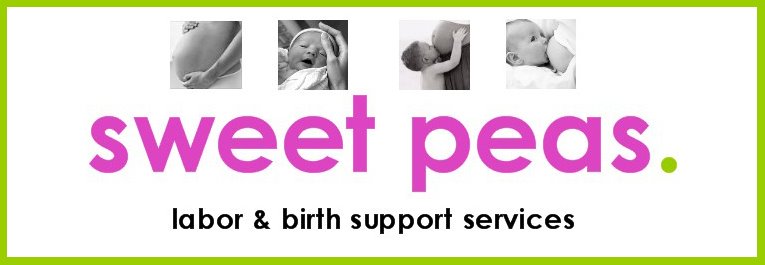I heard something interesting last night at my doula meeting, from some very wise and experienced doulas about how to write a birth plan. They suggested that instead of trying to orchestrate every detail of your birth from lighting to cord clamping (using the laundry list templates that you can find around), pick about three things that are most important to you about the labor and birth to write down and document. The idea is that if you focus on the big picture and less on the minor details, you will be more likely get what you want when you ask for the big things, and receive a warmer reception from your physician and attending labor and delivery nurse.
Those long lists with all of the check-boxes do have a use, however, in my opinion. These can be used as great communication tools for your partner, doula, and your care provider prior to delivery. They can not only help you form ideas about what you would like your birth to be like, but to also identify things that you can be flexible on. It is important to ask whoever is delivering your baby what they perceive as "typical" for their deliveries -- Do they encourage movement? What pushing positions are "allowed"? What is their percentage of episiotomies? What tends to happen to baby after delivery? Do they delay cord clamping? Do they take baby right away or do they put the baby on mom's chest? These types of questions can help you get a feel for your doctor's style, especially if she takes the time to answer your questions and meet your concerns, if you have any.
When approaching birth, it is important to balance a feeling of "go-with-the-flow" with "honoring mother's and baby's experience", as many aspects of your birth you just will not have any control over (timing and length of labor and pushing, how baby is engaged, etc.). This should not diminish the fact, however, that you are the most important person, save baby, in the room when you are in labor. You deserve to be respected, honored, listened to and spoken to directly. If your partner and doula are aware of your "ideal" birth, they will have the ability to support you in a way that will leave you with positive feelings about your birth experience. And if you can single out a couple of the most important things to you and share them with the hospital staff, in writing, you will be more likely to have them "hear" you without overloading them with too much information.
Picking out your most important wish for each stage of labor makes it simple:
- What is your most important need during labor? Do you want to be allowed to move? Do you want to labor in the tub? Do you not want medication offered unless you ask? Do you not want an IV?
- What is your most important need while you are pushing? Do you want to try squatting if baby is having difficulty descending? Do you want to push on your side (protecting your perineum)? Do you want someone to count for you or do you want silence?
- What is your most important need once baby is born? Do you want the cord clamping to be delayed? Do you want baby immediately on your chest? Do you want to establish nursing before tests and weight are done?
Remember to share this short list with your care provider ahead of time, so they can tell you that they are completely on board for what is on your birth plan. Better yet, have them sign it. For the majority of the time that you are laboring (even if you have a midwife) you will be attended by a labor and delivery nurse who will be accustomed to "hospital policy". If you have something on your birth plan that is different than what is normally done at your particular hospital, your nurse will have your doctor's written permission in hand (they might also call them for further confirmation) to allow you to exercise your wishes without the impediment of the hospital staff. This is why a shorter list is so useful and will most likely have a warmer reception than a three page script.
If it makes you feel any better, I was one of those who brought a three page script, along with about 17 extra copies (in case it got lost), to the hospital. I don't recommend it. Everything turned out okay, but I definitely got several eye-rolls from my nurses when I asked them if they had read my birth plan.
